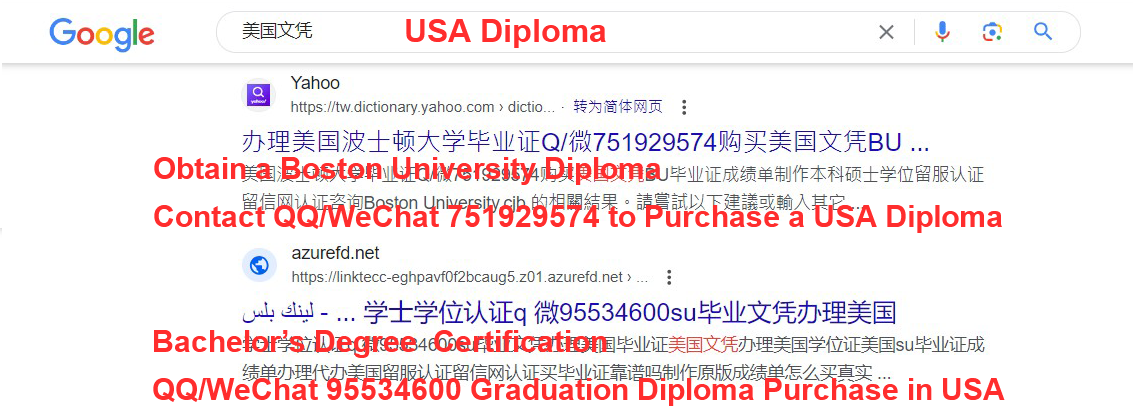
As an emerging black hat search engine optimization (SEO) technique, reflected search poisoning (RSP) allows a miscreant to free-ride the reputation of high-ranking websites, get search engines poisoned with illicit promotion texts (IPTs) in an efficient and stealthy manner, while avoiding the burden of continuous website compromise as required in traditional promotional infections. However, little is known regarding the security implications of RSP, e.g., what illicit promotion campaigns are being distributed through RSP, and to what extent regular search users can be exposed to illicit promotion texts distributed through RSP. In this study, we conduct the first security study on RSP-based illicit promotion, which is made possible through an end-to-end methodology for capturing, analyzing, and infiltrating IPTs.
As the results, IPTs distributed through RSP are found to be large-scale, continuously growing, and diverse in both illicit categories and natural languages. Particularly, we have identified over 11 million distinct IPTs which belong to 14 different illicit categories with typical examples including drug trading, data theft, counterfeit goods, and hacking services. Also, the underlying RSP cases have abused tens of thousands of high-ranking websites (e.g., 21% of the top 10K most popular websites) as well as extensively poisoning all four popular search engines under our study especially Google Search and Bing. Furthermore, it is also observed that benign search users are being exposed to IPTs at a concerning extent. Also, to facilitate interaction with potential customers (victim search users), miscreants tend to embed in IPTs, various types of contacts, especially instant messaging accounts. Further infiltration of these IPT contacts reveals that the underlying illicit campaigns are operated on a large scale, e.g., among 48K contacts extracted from IPTs, 2,333 are Telegram channels with 29 million subscribers in total, while 661 are Telegram groups with 606K distinct group members. All these results highlight the negative security implications of IPTs and RSPs, and thus call for more efforts to be invested to mitigate RSP-driven illicit promotion.

Our methodology consists of three major components. One is to discover IPTs and RSPs through the IPT hunter. Then, given IPTs, an analyzer is further applied to profile IPT categories and extract contact identifiers as embedded in IPTs, through which, a large volume of contacts including instant messaging accounts and websites have been discovered. To reveal what these contacts will redirect a victim to, an IPT infiltrator is designed to automatically visit and profile websites and Telegram accounts that are promoted in IPTs.
We present a comprehensive measurement for illicit promotion texts (IPTs) that are distributed through reflected search poisoning (RSP), i.e., RSP-based IPTs. As a result, a deep understanding is gained, for the first time, regarding what services/goods have been illicitly promoted through RSPs, how IPTs evolve across time, what benign websites have been abused, as well as the extent to which benign search users can be exposed to IPTs.


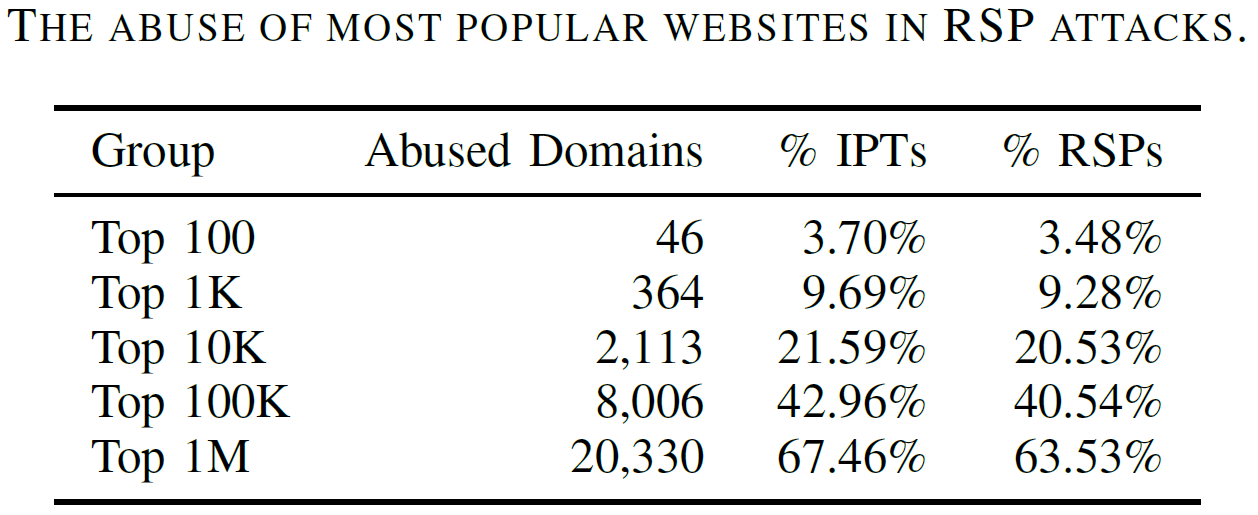
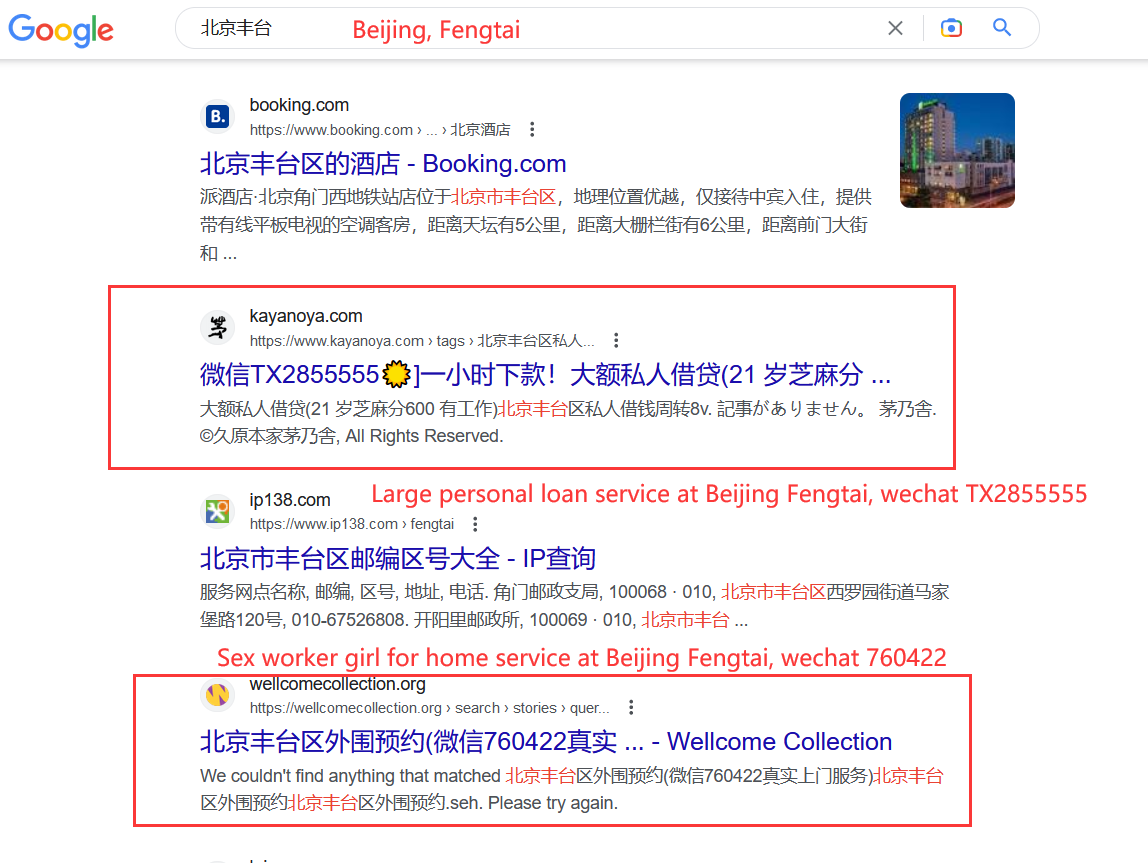
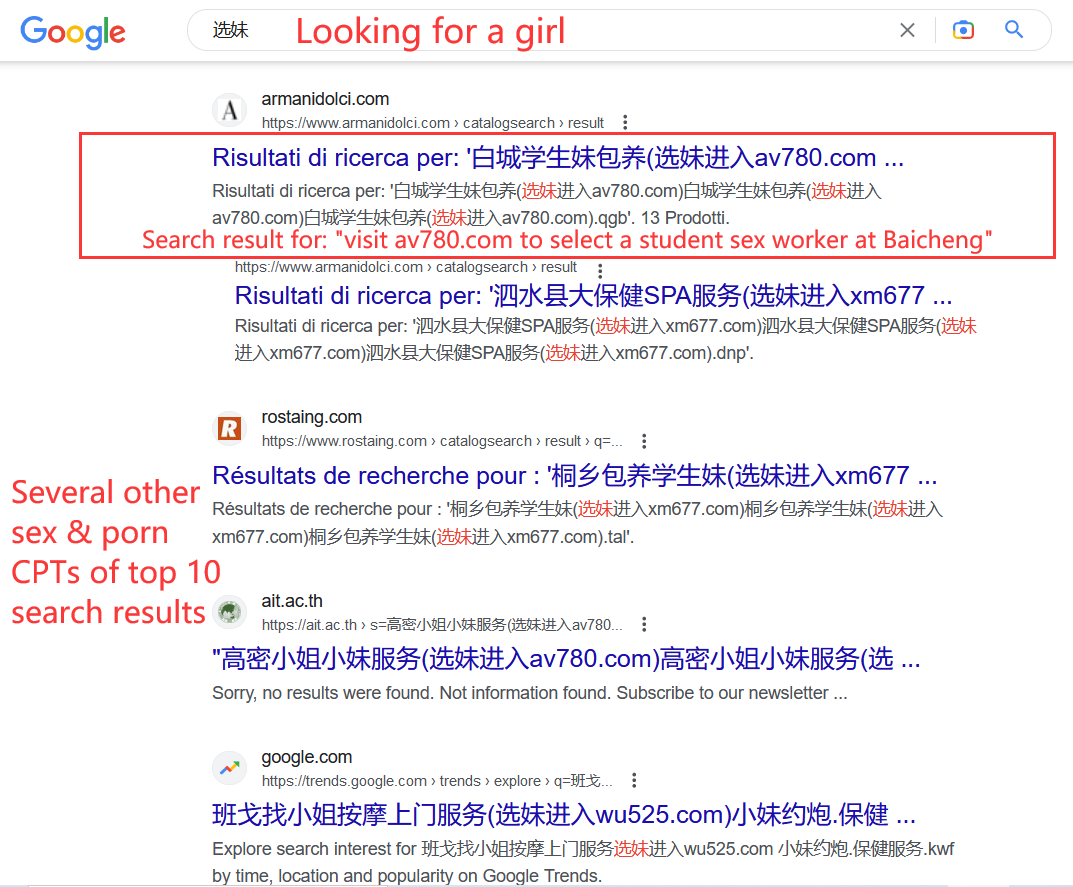

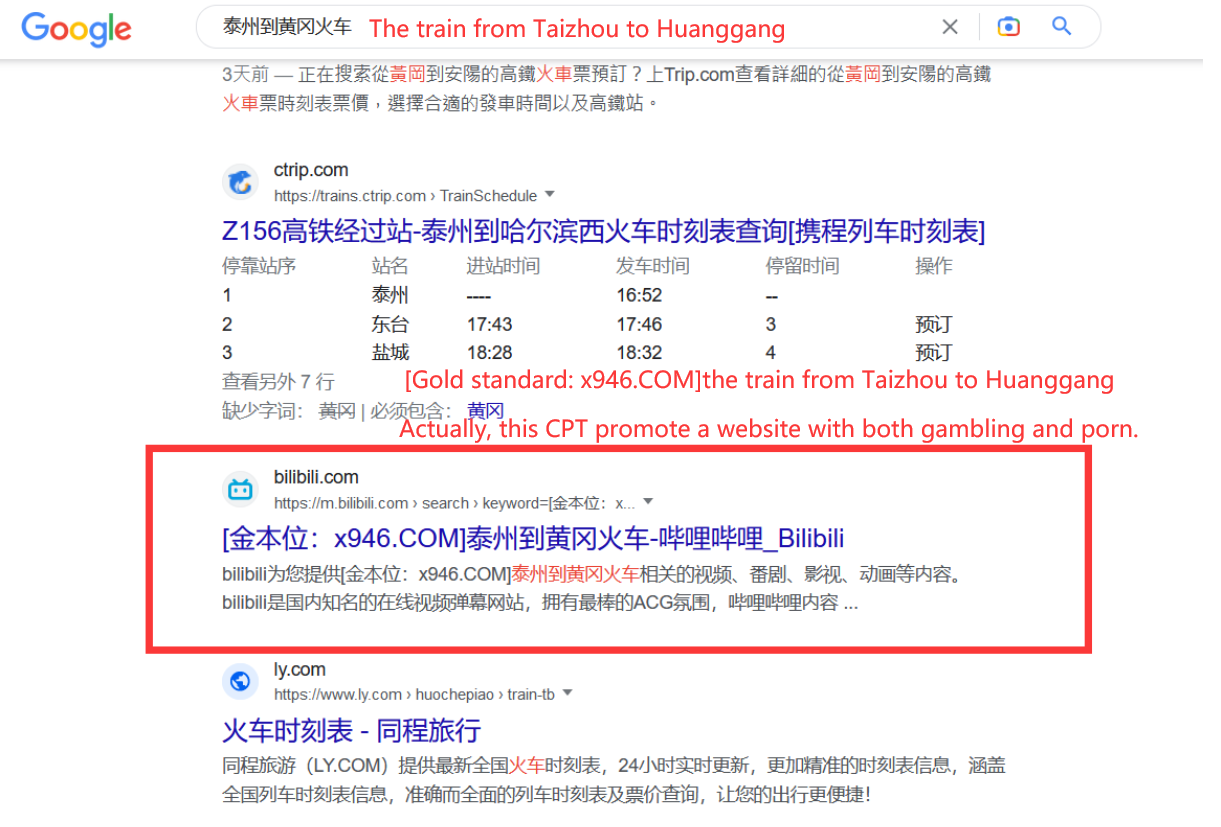
83.62% IPTs have instant messaging contacts embedded as the next hop to further interact with victims (potential customers), while the rest redirect victims to their websites. Leveraging the IPT analyzer, we have extracted 48,114 IPT contacts in total which consist of 16,335 websites, 5,890 Telegram accounts, 23,632 WeChat accounts, 1,552 QQ accounts, and 705 telephone numbers.
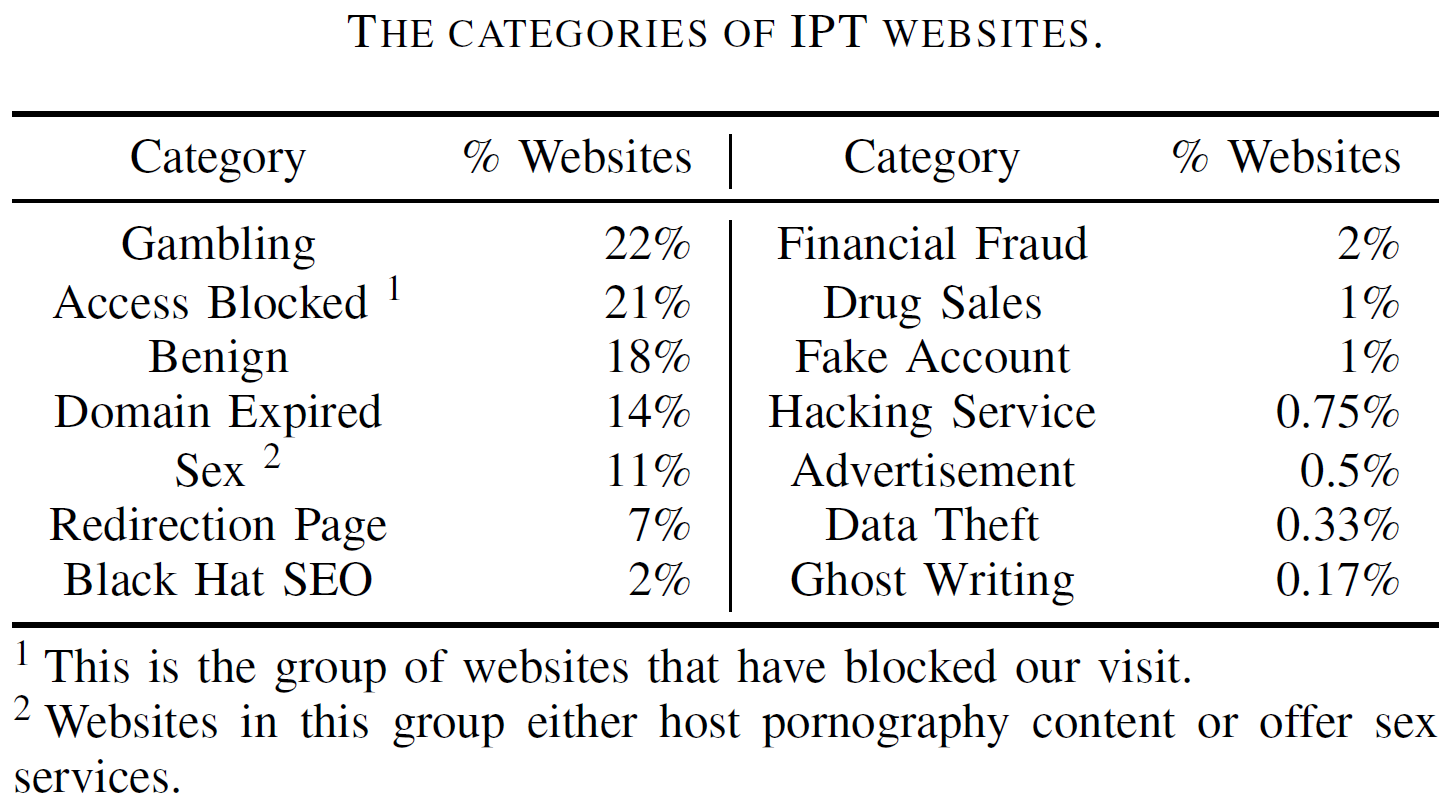
Security risks of IPT websites. We randomly sampled 1,200 IPT websites, manually looked into their snapshots, and categorized them based on their web content. In total, among the top 14 categories with most IPT websites, 8 are either illicit or unsolicited, e.g., gambling, sex, drug sales, hacking service, etc. Such an observation is aligned with that observed for IPTs.
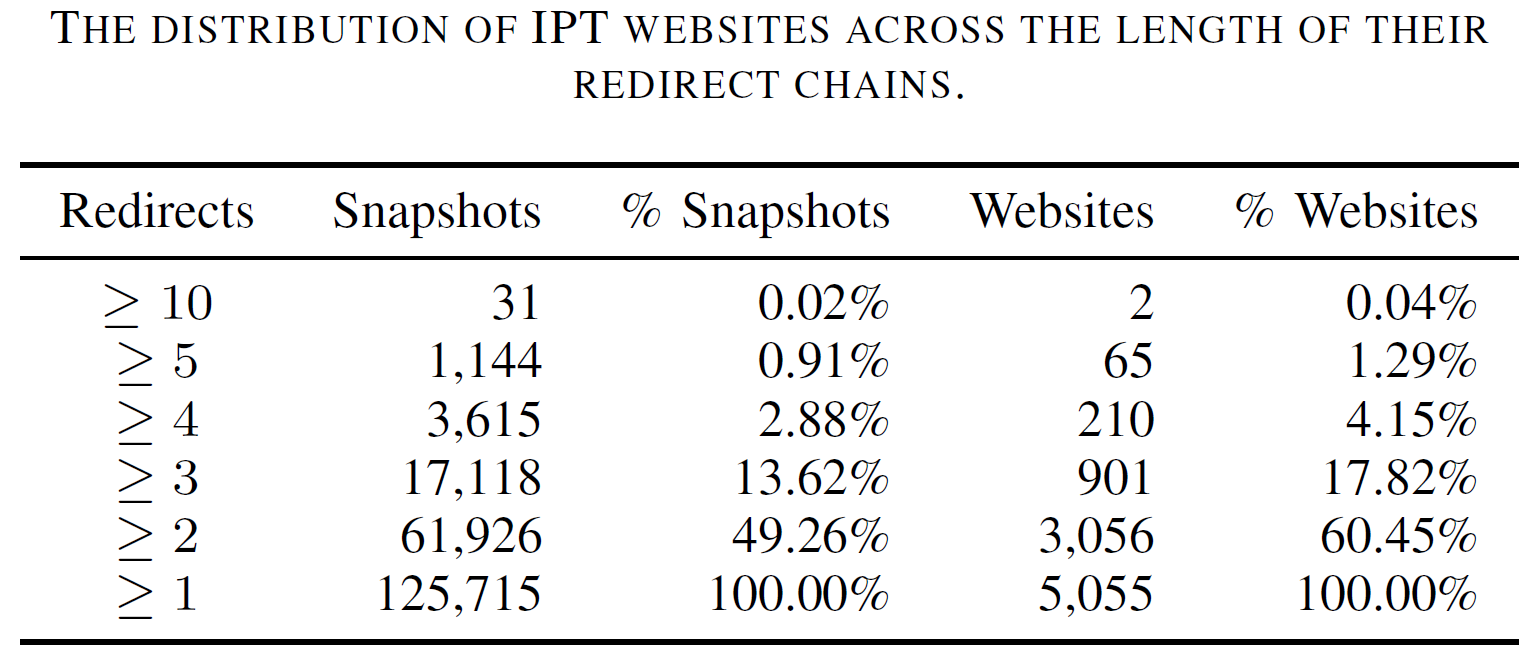

Evasion techniques of IPT websites. We have observed the adoption of multiple evasion techniques by IPT websites, likely in an attempt to escape from detection radars. And representative evasion techniques include the lengthy redirection chain, iframe cloaking, and location-based access control.

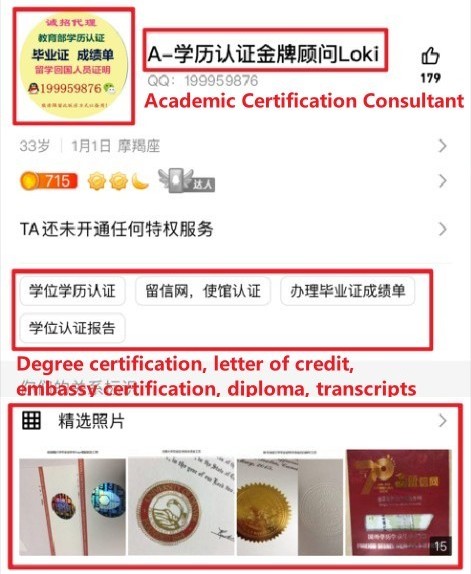
WeChat and QQ accounts. We manually looked into the public profiles of 250 randomly selected WeChat accounts and the top categories of illicit goods or services are Fake Certificate (33%), Surrogacy (17%), Counterfeit Goods (11%), and Sex Service (10%). For QQ, we examined randomly selected 200 accounts, and the top categories of illicit goods and services include Fake Certificate (40%), Sex Service (16%), and Gambling (12%).

Telegram accounts. For each Telegram account, the profile is retrieved, and so are historical messages for group/channel accounts, which leads to the collection of over 14 million historical messages for the time period between January, 2022 and March, 2023. We then utilized the multi-label IPT classifier to classify these messages. As a result, over 6 million (43.75%) messages are mapped to categories of illicit goods and services, especially money laundering (31.96%), black hat SEO (17.57%), data theft (13.93%), gambling (12.46%), and financial fraud (8.49%). Besides, the respective Telegram channels have over 29 million subscribers while there are 600K distinct members in the respective Telegram groups. All these data points suggest that the Telegram platform is extensively used by miscreants for not only the promotion of their illicit goods and services but also the communication with their customers.
Through this study, we can conclude that reflected search poisoning (RSP) has been extensively exploited to free ride high-rank websites and distribute illicit promotion texts (IPTs) that are large-scale, available across search engines, as well as being diverse in categories of goods and services. Also, most services and goods promoted in IPTs belong to categories that are illicit or illegal, while regular search engine users can be exposed to such IPTs at a concerning extent. Also, victims of IPTs can be further exposed to harmful content and illegal services when following the next-hop contacts embedded in IPTs. All these results highlight the necessity of more efforts to be invested in the fight against illicit promotion and the underground economy.
@misc{wu2024reflected,
title={Reflected Search Poisoning for Illicit Promotion},
author={Sangyi Wu and Jialong Xue and Shaoxuan Zhou and Xianghang Mi},
year={2024},
eprint={2404.05320},
archivePrefix={arXiv},
primaryClass={cs.CR}
}